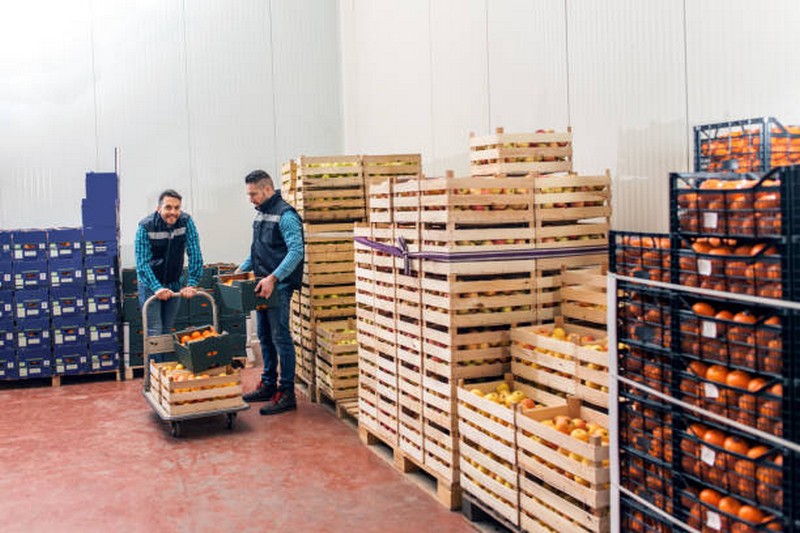In the complex fabric of the global supply chain, industrial cold rooms perform a critical function that goes well beyond storage. These specialized facilities are critical in ensuring the integrity, safety, and lifespan of perishable commodities in a variety of sectors, including food and medicines, floriculture, and biotechnology. As the globe grows more linked, the role of industrial cool rooms in maintaining the smooth flow of products cannot be emphasized.
Ensuring Product Integrity and Safety
The major purpose of industrial cold rooms is to offer a regulated environment in which temperature and humidity levels are carefully monitored in order to protect the quality of perishable commodities. This is critical in the food business, where fresh fruit, dairy goods, and meats must be stored under particular temperatures to avoid rotting and maintain their safety for consumption. Pharmaceuticals, including vaccinations and drugs, need rigorous temperature control to maintain their effectiveness. Industrial cold rooms protect public health and avoid economic losses caused by product deterioration by inhibiting the development of bacteria and other diseases.
Enhancing operational efficiency.
Industrial cold rooms are built for large-capacity storage, allowing firms to better manage inventories and react quickly to market needs. Advanced refrigeration technologies and computerized inventory management systems provide maximum space utilization and simple access to items, considerably increasing operating efficiency. This capability for bulk storage also supports the economic notion of purchasing in bulk to save money, giving firms a competitive advantage in pricing tactics.
Facilitating Regulatory Compliance.
In many industries, regulatory compliance is unavoidable. Industrial cold rooms guarantee that firms adhere to strict industry norms and regulations regarding product storage. For example, the pharmaceutical business is subject to tight requirements for medicine and vaccine storage conditions, which failure to follow may result in harsh fines and loss of customer trust. Similarly, food safety rules require particular temperature limits for the storage of perishable foods. Industrial cold rooms safeguard organizations from legal consequences while also reinforcing their reputation for quality and dependability.
Supporting Global Trade and Logistics.
Globalization of commerce has boosted demand for industrial cold rooms as items travel greater distances and need storage at numerous points along the supply chain. These facilities are critical to cold chain logistics, which is a temperature-controlled supply chain used to move perishable commodities between continents. Industrial cool rooms at ports, airports, and distribution facilities serve as essential nodes, ensuring that items are in peak condition from point of origin to end customer. This capacity not only broadens market access for manufacturers, but also increases the variety of items accessible to consumers globally.
Advancing sustainability efforts
Sustainability is an increasing issue in the global supply chain, and industrial cold rooms help to promote environmental stewardship in a variety of ways. Modern cold storage technologies prioritize energy efficiency, lowering power usage and decreasing the carbon impact of refrigeration operations. Furthermore, by increasing product shelf life and minimizing waste, industrial cold rooms promote sustainable consumption practices. Innovations like as solar-powered refrigeration systems and natural refrigerants are pushing the envelope, integrating cold storage techniques with sustainability and environmental aims.
Navigating Challenges and Future Direction
Despite its importance, the functioning of industrial cool rooms is not without obstacles. The significant energy consumption of refrigeration systems has motivated continuing research into more environmentally friendly and cost-effective alternatives. Furthermore, the worldwide effort to reduce greenhouse gas emissions is accelerating the development of novel refrigerants with reduced global warming potential. As technology improves, we may expect to see smarter, more energy-efficient cold rooms outfitted with IoT sensors and AI-powered systems for real-time monitoring and predictive maintenance, hence increasing efficiency and sustainability.
The future of industrial cold rooms in the global supply chain is bright, with ongoing innovation aimed at increasing efficiency, lowering environmental impact, and meeting the changing needs of global commerce. As these facilities become more integrated with innovative technology, their role in maintaining the smooth flow of perishable commodities across the world will definitely rise, cementing their place as a cornerstone of the contemporary supply chain.
Industrial cold rooms play an important and diverse function in the worldwide supply chain. These facilities provide a substantial contribution to the seamless running of supply chains across sectors by maintaining product integrity, assuring regulatory compliance, improving operational efficiency, enabling global commerce, and furthering sustainability initiatives. As the global economy evolves and demand for perishable commodities rises, industrial cold rooms will become more important. Embracing technology improvements and environmental measures will be critical in managing future difficulties and ensuring that cool rooms remain an important component in the global supply chain.

